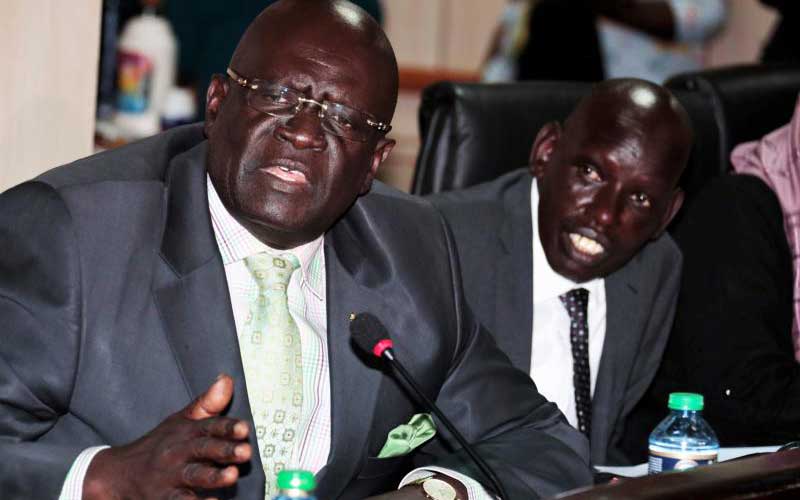×
The Standard e-Paper
Home To Bold Columnists

Education CS Prof George Magoha (left) and his PS Belio Kipsang at a past event. State seeks to reform university education and research. [File, Standard]
Higher education stakeholders are now seeking to hire foreign experts to lead public universities in new reforms that will firm up governance and management of the institutions.